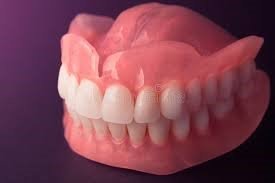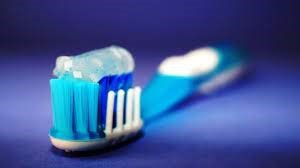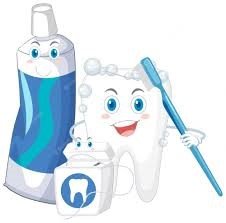Your smile is a powerful form of communication and reassurance to your loved one and they may well respond by smiling back, or maybe you will be rewarded with an unexpected smile when they have appreciated something you have said to them. In this guide we cover what you need to know about dental treatment for dementia patients.
Nothing you wear is more important than your smile Connie Stevens
It really is important to keep on top of the dental healthcare of dementia patients and to have their teeth regularly checked by a dentist as they many well not be able to explain to you that their teeth, gums or dentures are hurting them.
Dental Treatment for Dementia Patients
What dental treatment could be needed for dementia?
 Regular dental treatment for dementia patients can highlight a variety of dental problems that they might not be able to explain but could be causing them pain, anxiety and loss of appetite.
Regular dental treatment for dementia patients can highlight a variety of dental problems that they might not be able to explain but could be causing them pain, anxiety and loss of appetite.
A common problem is that sugar-based medication is bad for teeth and could be causing teeth decay if your loved one is not cleaning their teeth twice a day.
Another common problem found in dementia patients is that they have reduced saliva production.
An adequate amount of saliva is essential as it keeps the mouth clean, helping to prevent tooth decay and mouth ulcers.
Sometimes a reduction in saliva is caused by medication and in other cases, it is changes in brain function that has reduced saliva production.
During the middle and late stages of dementia, the oral health of your loved one may well decline as they forget to brush their teeth or do not do so adequately and it is extra important for you to keep an eye to ensure that they dental hygiene is maintained.
Dentistry for Alzheimer’s patients
 It is important to choose the dentist who treats your loved one carefully. Perhaps your family dentist is ideal and has experience of working with dementia patients and the elderly.
It is important to choose the dentist who treats your loved one carefully. Perhaps your family dentist is ideal and has experience of working with dementia patients and the elderly.
If they are happy to continue seeing your loved one that is great, but if they are reluctant or unsure, ask them if they can recommend a dentist who has had specialist training in geriatric dental treatment for dementia.
These dentists use various techniques to help put patients at ease and can offer different treatment options that could suit your loved one better. The cost of seeing a ‘dementia-friendly- dentist’ is usually no greater.
Dental care for memory-impaired patients
 People with dementia are prone to tooth decay and gum disease because their oral hygiene can be challenging and they cannot explain if their teeth or gums are feeling sore or hot and cold sensitive.
People with dementia are prone to tooth decay and gum disease because their oral hygiene can be challenging and they cannot explain if their teeth or gums are feeling sore or hot and cold sensitive.
Your loved one needs to clean their teeth gently twice a day . They need to brush their teeth, gums and tongue. The final clean of the day should be after dinner and their bedtime meds.
Dentures should be rinsed well after every meal and brushed once a day to remove any particles of food. They should then be left to soak overnight in denture cleaner.
Once your loved one has removed their dentures, they need to clean their gums and tongue using a very soft toothbrush.
The best toothbrushes for dementia patients
Many dementia patients find it easier to brush their teeth with a children’s toothbrush as it is smaller and more manoeuvrable and the bristles are softer. In contrast, many do not like the sound of an electric toothbrush.
Giving help with dental care
 You may find that your loved one may have forgotten how to clean their teeth.
You may find that your loved one may have forgotten how to clean their teeth.
Show them how by cleaning your teeth, or explain how to in short clear and very accurate sentences. You may be able to place your hand over theirs as they hold the toothbrush to guide them.
- Sit with your loved one when they clean their teeth.
- Squeeze a pea-sized amount of toothpaste on their brush.
- Guide them how to clean all their teeth and then their tongue.
- Encourage them to spit out the toothpaste when they have finished.
- Do not rinse out their mouth as there will be a protective film of toothpaste left on their teeth.
- Remember to replace the toothbrush every three months.
Dentists do recommend the regular use of dental floss too, but this could be ‘a bridge too far’….
It is important that your loved one does not become unhappy and agitated. If they do, try cleaning their teeth again later.
Spotting potential dental problems
Although your loved one may not be able to explain that they have a dental problem, some of their actions will, so it is good to watch out for any of the following and book a dental appointment if needed.
- Your loved one grimaces when eating.
- Their teeth appear to be hot and cold sensitive.
- Their gums bleed when brushed ( this can indicate plaque, but if the bleeding continues for more than ten days, visit your dentist).
- A tooth becomes loose.
- Dentures appear to be fitting badly.
Dementia and oral health solutions
 Maintaining good oral hygiene can be challenging, but there are some foods and drinks that help keep teeth clean too and minimising your loved one’s sugar intact will be beneficial too.
Maintaining good oral hygiene can be challenging, but there are some foods and drinks that help keep teeth clean too and minimising your loved one’s sugar intact will be beneficial too.
- Give your loved one plenty of water to drink throughout the day.
- Eat plenty of fresh fruit and vegetables – carrots, celery and apple are particularly good for teeth.
- Offer a savoury cracker, pitta bread or rice cake with sugar-free spread for a snack.
- Plain yoghurt is better for teeth than sweetened ones.
- Avoid fruit squashes and fizzy drinks.
Dental Treatment for Dementia Patients- Final Thoughts
Do try and continue regular dental check-ups for as long as possible. When you visit the dentist take a list of your loved one’s medication with you. Certain medicines can cause oral health issues, such as having a dry mouth.
If you do detect that your loved one does have a dental problem, don’t hesitate to contact your dentist. It is important to give dental treatment for dementia patients to provide the appropriate oral care.

